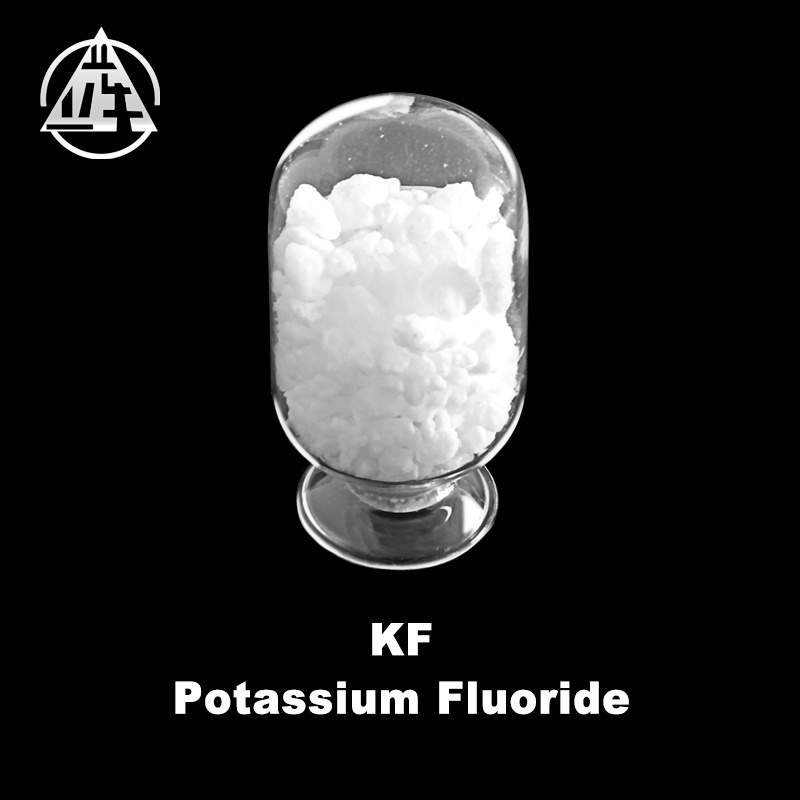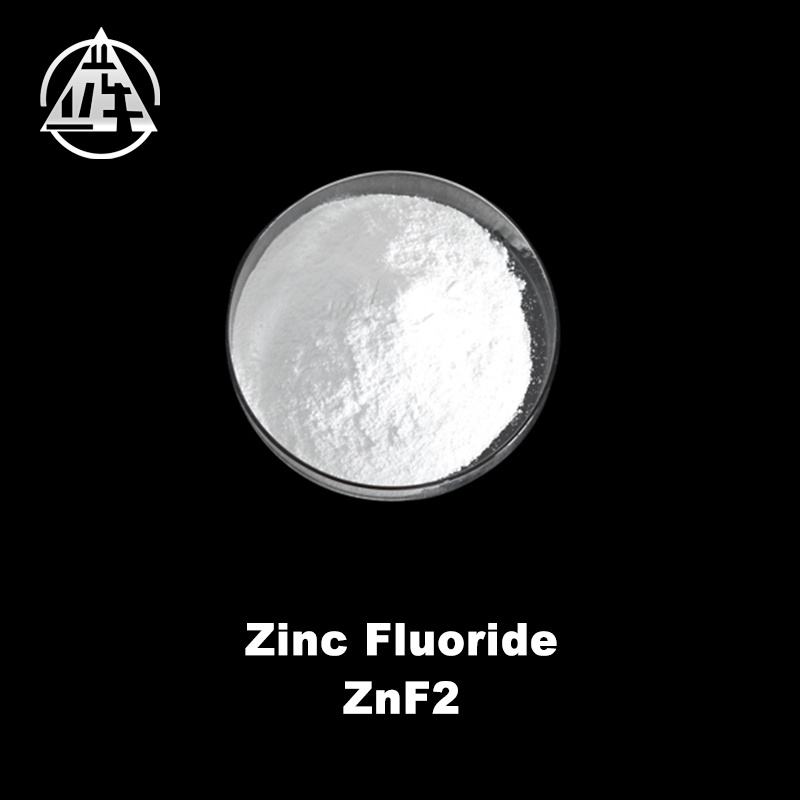The Benefits of Using Zinc Fluoride (ZnF2) in the Chemical Industry
Release Time:
2023-08-13
Table of Contents: 1. Introduction to Zinc Fluoride 2. Applications of Zinc Fluoride in the Chemical Industry 3. Enhancing Efficiency and Productivity 4. Improving Product Quality and Performance 5. Cost-Effectiveness and Sustainability 6. Safety and Environmental Considerations 7. Frequently Asked Questions (FAQs) 8. Conclusion 1. Introduction to Zinc Fluoride Zinc Fluoride (ZnF2) is a highly ver
Table of Contents:
1. Introduction to Zinc Fluoride
2. Applications of Zinc Fluoride in the Chemical Industry
3. Enhancing Efficiency and Productivity
4. Improving Product Quality and Performance
5. Cost-Effectiveness and Sustainability
6. Safety and Environmental Considerations
7. Frequently Asked Questions (FAQs)
8. Conclusion
1. Introduction to Zinc Fluoride
Zinc Fluoride (ZnF2) is a highly versatile compound that finds widespread use in the chemical industry. It is composed of zinc and fluorine atoms, forming a crystalline solid with a wide range of properties. This compound is known for its exceptional stability and compatibility with other chemicals, making it an ideal choice for various applications.
2. Applications of Zinc Fluoride in the Chemical Industry
Zinc Fluoride finds numerous applications across different sectors of the chemical industry. Its unique properties make it an excellent additive in the production of ceramics, glass, and optical materials. Additionally, it is widely used as a catalyst in various chemical reactions, aiding in the synthesis of important compounds. Furthermore, Zinc Fluoride is utilized in the manufacturing of specialty chemicals, such as pharmaceuticals and agrochemicals.
3. Enhancing Efficiency and Productivity
By incorporating Zinc Fluoride into chemical processes, industries can significantly enhance their efficiency and productivity. The compound acts as a catalyst, accelerating reactions and reducing reaction times. This leads to faster production rates and improved overall process efficiency. Moreover, Zinc Fluoride can also increase the yield of desired products, minimizing waste and maximizing productivity.
4. Improving Product Quality and Performance
The use of Zinc Fluoride in the chemical industry can greatly improve the quality and performance of various products. When added to ceramics and glass manufacturing, it enhances the transparency and durability of the final products. In optical materials, Zinc Fluoride contributes to the clarity and refractive index, resulting in superior optical performance. These enhancements translate into better end-products with enhanced properties and increased customer satisfaction.
5. Cost-Effectiveness and Sustainability
Zinc Fluoride offers cost-effective solutions to the chemical industry. Its catalytic properties allow for reduced reaction times, leading to lower energy consumption and cost savings. Additionally, the compound's stability and compatibility reduce the need for frequent maintenance and replacement, further reducing operational costs. Furthermore, Zinc Fluoride is considered environmentally friendly due to its low toxicity and minimal impact on the environment, making it a sustainable choice for the chemical industry.
6. Safety and Environmental Considerations
When working with Zinc Fluoride, it is crucial to prioritize safety. Proper handling and storage practices should be followed to minimize the risk of exposure. While Zinc Fluoride is generally considered safe when handled correctly, it is important to adhere to safety guidelines to protect both workers and the environment. Additionally, waste disposal and recycling methods should be implemented to ensure responsible and environmentally conscious practices.
7. Frequently Asked Questions (FAQs)
Q1: Is Zinc Fluoride harmful to the environment?
A1: Zinc Fluoride is considered environmentally friendly, with minimal impact on the environment when handled and disposed of properly.
Q2: Can Zinc Fluoride be used in pharmaceutical manufacturing?
A2: Yes, Zinc Fluoride finds applications in pharmaceutical manufacturing, particularly in the synthesis of certain compounds.
Q3: Does Zinc Fluoride improve the transparency of glass?
A3: Yes, when incorporated into glass manufacturing, Zinc Fluoride enhances transparency and durability.
Q4: How does Zinc Fluoride contribute to cost savings?
A4: Zinc Fluoride's catalytic properties enable faster reactions, reducing energy consumption and resulting in cost savings.
Q5: What safety precautions should be taken when working with Zinc Fluoride?
A5: Proper handling and storage practices should be followed to minimize the risk of exposure, ensuring the safety of workers.
8. Conclusion
Incorporating Zinc Fluoride (ZnF2) into the chemical industry brings forth a multitude of benefits. From improving efficiency and productivity to enhancing product quality and performance, this versatile compound offers a competitive edge to various sectors. With its cost-effectiveness, sustainability, and compatibility, Zinc Fluoride proves to be an excellent choice for both manufacturers and consumers. Embracing the advantages of Zinc Fluoride can unlock new opportunities and propel the chemical industry towards greater success.
1. Introduction to Zinc Fluoride
2. Applications of Zinc Fluoride in the Chemical Industry
3. Enhancing Efficiency and Productivity
4. Improving Product Quality and Performance
5. Cost-Effectiveness and Sustainability
6. Safety and Environmental Considerations
7. Frequently Asked Questions (FAQs)
8. Conclusion
1. Introduction to Zinc Fluoride
Zinc Fluoride (ZnF2) is a highly versatile compound that finds widespread use in the chemical industry. It is composed of zinc and fluorine atoms, forming a crystalline solid with a wide range of properties. This compound is known for its exceptional stability and compatibility with other chemicals, making it an ideal choice for various applications.
2. Applications of Zinc Fluoride in the Chemical Industry
Zinc Fluoride finds numerous applications across different sectors of the chemical industry. Its unique properties make it an excellent additive in the production of ceramics, glass, and optical materials. Additionally, it is widely used as a catalyst in various chemical reactions, aiding in the synthesis of important compounds. Furthermore, Zinc Fluoride is utilized in the manufacturing of specialty chemicals, such as pharmaceuticals and agrochemicals.
3. Enhancing Efficiency and Productivity
By incorporating Zinc Fluoride into chemical processes, industries can significantly enhance their efficiency and productivity. The compound acts as a catalyst, accelerating reactions and reducing reaction times. This leads to faster production rates and improved overall process efficiency. Moreover, Zinc Fluoride can also increase the yield of desired products, minimizing waste and maximizing productivity.
4. Improving Product Quality and Performance
The use of Zinc Fluoride in the chemical industry can greatly improve the quality and performance of various products. When added to ceramics and glass manufacturing, it enhances the transparency and durability of the final products. In optical materials, Zinc Fluoride contributes to the clarity and refractive index, resulting in superior optical performance. These enhancements translate into better end-products with enhanced properties and increased customer satisfaction.
5. Cost-Effectiveness and Sustainability
Zinc Fluoride offers cost-effective solutions to the chemical industry. Its catalytic properties allow for reduced reaction times, leading to lower energy consumption and cost savings. Additionally, the compound's stability and compatibility reduce the need for frequent maintenance and replacement, further reducing operational costs. Furthermore, Zinc Fluoride is considered environmentally friendly due to its low toxicity and minimal impact on the environment, making it a sustainable choice for the chemical industry.
6. Safety and Environmental Considerations
When working with Zinc Fluoride, it is crucial to prioritize safety. Proper handling and storage practices should be followed to minimize the risk of exposure. While Zinc Fluoride is generally considered safe when handled correctly, it is important to adhere to safety guidelines to protect both workers and the environment. Additionally, waste disposal and recycling methods should be implemented to ensure responsible and environmentally conscious practices.
7. Frequently Asked Questions (FAQs)
Q1: Is Zinc Fluoride harmful to the environment?
A1: Zinc Fluoride is considered environmentally friendly, with minimal impact on the environment when handled and disposed of properly.
Q2: Can Zinc Fluoride be used in pharmaceutical manufacturing?
A2: Yes, Zinc Fluoride finds applications in pharmaceutical manufacturing, particularly in the synthesis of certain compounds.
Q3: Does Zinc Fluoride improve the transparency of glass?
A3: Yes, when incorporated into glass manufacturing, Zinc Fluoride enhances transparency and durability.
Q4: How does Zinc Fluoride contribute to cost savings?
A4: Zinc Fluoride's catalytic properties enable faster reactions, reducing energy consumption and resulting in cost savings.
Q5: What safety precautions should be taken when working with Zinc Fluoride?
A5: Proper handling and storage practices should be followed to minimize the risk of exposure, ensuring the safety of workers.
8. Conclusion
Incorporating Zinc Fluoride (ZnF2) into the chemical industry brings forth a multitude of benefits. From improving efficiency and productivity to enhancing product quality and performance, this versatile compound offers a competitive edge to various sectors. With its cost-effectiveness, sustainability, and compatibility, Zinc Fluoride proves to be an excellent choice for both manufacturers and consumers. Embracing the advantages of Zinc Fluoride can unlock new opportunities and propel the chemical industry towards greater success.



